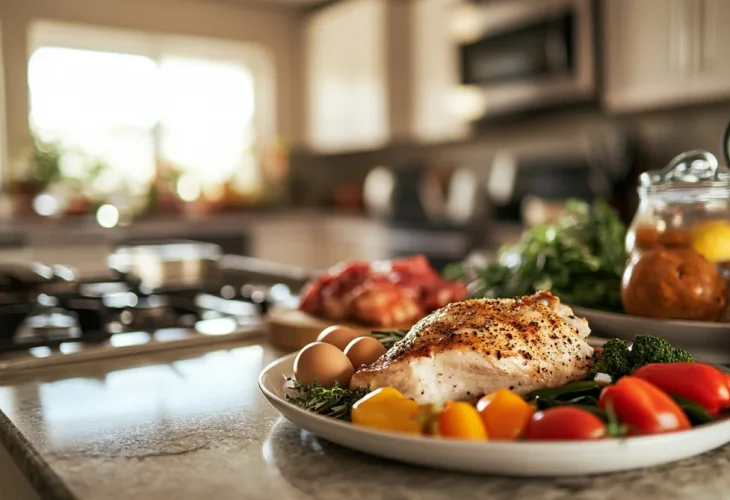Health and Nutrition
Dr. Maya Rozman: Gained a Few Pounds Over Passover? Here's How to Shed Them
Cut back on bread, rice, pasta, and potatoes, and try opting for healthier foods instead. Just as we finish gaining a bit of weight over Passover, the Independence Day BBQs are already upon us. Here are some important tips from a dietitian.

After Passover, when many of us find ourselves a few pounds heavier from holiday meals, and with Israeli Independence Day approaching — bringing another wave of BBQs — an important question arises: How can we navigate this period without gaining additional weight, and how can we shed the extra pounds from Passover? Dr. Maya Rozman, a dietitian, shared her insights on her show on 103FM about the best way to get back on track.
"The cliché ‘diet after the holidays’ reflects not only the reality that we’ve just gone through a month of heavy family meals, but also how difficult it is to avoid weight gain, even if we skip some dishes," Dr. Rozman explained. According to her, even meals that appear healthy can be calorie-dense, leading to an average weight gain of at least two kilograms during this period. "It’s time to start taking care of our health — to eat properly, get some exercise, and burn off the excess weight we’ve gained," she added.
Dr. Rozman also addressed various methods that promise rapid weight loss, cautioning: "The market is flooded with products that promise miracles, like appetite suppression or effortless calorie burning. Some don’t help at all, and some can even harm your health." She explained that when the body is repeatedly subjected to hunger, it may suffer long-term effects, even after normal eating patterns resume.
Regarding different diet approaches, she noted: "Of course, everyone needs a menu that suits them individually, but according to numerous studies, diets higher in protein and lower in carbohydrates produce the best results — both for weight loss, preserving muscle mass, and improving health markers."
In conclusion, Dr. Rozman recommended reducing bread, rice, pasta, and potatoes, and opting instead for foods such as meat, fish, eggs, dairy products, and legumes. "I’ve developed a method in which you eat carbohydrates only in the morning, and focus on proteins and vegetables for lunch and dinner — this way, you maintain better appetite control," she concluded.

